These stories are inspired by the 100 Days project film clips of John Timmons’ (corresponding clips are linked below each title) and each is in response to his own daily piece or that of one of the other participants.
Note: only the most current stories are accessible, to secure the text and particularly, the images from being nabbed by and displayed on public sites. If you would like to read some of the stories that are here, simply email me at smgct1@comcast.net for the password.
*****
#70 EYES
You just got used to it. You got used to being watched because that was just the way it was. In a generation or two, anything different was forgotten. Old people died as they were supposed to and the past dimmed and flickered and went out with the last breath of a long-tended memory.
One old man remembered the sunlight on leaves. Remembered the mornings waking up as the sun climbed over the mountains and skipped over the sky. Remembered the darkness as it landed on the other side of what they used to call states. But that was three decades ago and he and Marlene were just twenty. When twenty was young, not middle-aged, for now no one could live in the dark for so long. Except him; somehow, he’d survived it.
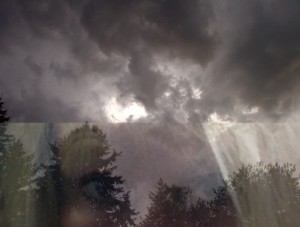 I knew the old man from my father. He’d come upon him just as the sun turned the world from eye-squinting grey to full black one afternoon. He’d stayed in the hills too long, fishing the stream when they were still open to the public. When there were still fish to catch out in the wild. You didn’t need to see them, you knew by the tug on a line and you snapped the pole back, set the hook, and reeled ‘em in. That’s what my father told me.
I knew the old man from my father. He’d come upon him just as the sun turned the world from eye-squinting grey to full black one afternoon. He’d stayed in the hills too long, fishing the stream when they were still open to the public. When there were still fish to catch out in the wild. You didn’t need to see them, you knew by the tug on a line and you snapped the pole back, set the hook, and reeled ‘em in. That’s what my father told me.
He was getting ready to leave and he saw the man, sitting quietly with a line in the water.
“Better get home, pal,” he’d said.
“I am home,” the old man replied.
From what my father had told me and what I’ve heard from the old man himself, he’d adjusted, like a dilating pupil, letting the light in far more than the others even guessed at. When you looked at him, you could see that there weren’t any irises, no color, just a big ball of black staring out from under thin lids. He lived alone since his wife passed. After a few years, nobody else even knew he was there.
I looked in on him since my father died. He was aging quickly now. I brought him meals and made sure he was clean and warm enough. He refused to go down into town. Lately, he was too weak to go out past his porch but sometimes he’d sit there all day, staring out at the woods. I was worried. I think he’d sit there all night sometimes too.
“My Marlene and I used to have picnics out by the lake,” he said. “I don’t know if even I could find my way back there now.”
“That’s what the Eyes are for,” I told him.
“Bull!” he said. “The Eyes aren’t for your seein’, the Eyes are for seein’ you.”
“Well promise me you won’t go out there then. Unless you use the Eyes. All you have to do is press the button on the trees and you’ll be able to see the way until you come to the next station.”
“Station?” he said. “There aren’t ‘stations’ in the woods. They’re trees. Oaks and firs. Marlene and me will find the lake if I’m of the mind to go find it.”
That’s where I found him. That’s where I buried him. And even though the night had already begun to hang thick and black, I found my way down the hills somehow on my own.
*****
#69 WHY?
(does that answer your question?)
 She washed him away in the shower, soaping his hands off her skin. Clean, baptismal, free of the sin and the face of her father, the finger-pointing of nuns.
She washed him away in the shower, soaping his hands off her skin. Clean, baptismal, free of the sin and the face of her father, the finger-pointing of nuns.
She threw the big fluffy towel in the hamper, pulled a fresh one off the shelf and hung it on the bar. In the mirror she combed her wet hair, ran her fingers through it, watching the way she shaped it into a pageboy, curving the ends in towards her neck. She caught her own eye. Turned it green. Feathered her lashes into dark raven wingtips. Then naked, she went back to the scene.
She didn’t touch the money until the bed had been stripped and remade. Until she had dressed. Until she was ready to leave. She picked it up off the bedstand, counted it, put it into her wallet, into her purse.
She weaved between aisles, dodged cubicles and hands on the top floor of corporate. Smoothly maneuvered in offices that should have been hers, painting a watercolor smile on her face in the rain. She lunched with her best friend Tiffany, who worked the floor under hers.
“He grabbed my ass,” Tiffany told her, between bites of crisp greens with low-cal vinegar dressing. “He didn’t even care who saw.”
“Get used to it or get out,” she advised.
“I don’t know how you do it,” Tiffany said, “or why.”
“For the money,” she said. “Just for the money.”
*****
#68 WHAT WE SEE WHEN WE’RE LOOKING
(myopic)
 The sky swirled into the land and the two twirled together like a pinwheel he held to the wind as a child. In slow motion, as if in a film clip held back by a masterful editor to reveal seconds like minutes, turning days into years.
The sky swirled into the land and the two twirled together like a pinwheel he held to the wind as a child. In slow motion, as if in a film clip held back by a masterful editor to reveal seconds like minutes, turning days into years.
She came to him out of the clouds, or it could have been smoke from the gunfire. She was smiling and it made the pain disappear with the noise. He felt the weight of her hand on the open wound of his chest, holding his heart in her palm. He remembered an icon on his grandmother’s living room wall. The Madonna escorted by angels descending to earth. Her face was that radiant, now just as then.
He wondered how she could have known the moment he needed to touch her, to see her as the day they had gone to his senior prom. She was so lovely; the corsage he brought her, she stuck in her hair. It glowed like a pink lantern in the gold floss of her upsweep. He found it on the back seat of his car the next day. She laughed when he told her, but took it and pressed it among poems in a book that she read.
He tried to reach up to finger her lips, but his arm was held down at his side. “Easy,” he heard, “easy buddy, don’t try to move. The copter’s coming.” The voice was familiar yet eluded him in a flash of explosion that scared her away.
He stared at the flower she once again left behind as it blew in the turbulent sky.
*****
#67 WE’RE ALL ONLY DINNER
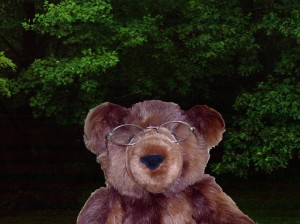 Every day Adele went to the zoo looking for Sam. She felt guilty, yes, because their last words had been high-pitched in argument, but also because she missed him. When the door slammed behind him she waited for him to come back. When three days went by, she knew that he probably wouldn’t.
Every day Adele went to the zoo looking for Sam. She felt guilty, yes, because their last words had been high-pitched in argument, but also because she missed him. When the door slammed behind him she waited for him to come back. When three days went by, she knew that he probably wouldn’t.
The hard part was finding him. He’d always liked the polar bears so that’s where she started. She saw a large male pacing the ice. Something felt familiar so Adele sat and watched. She wished he had taken a jacket. She wasn’t quite sure it was her Sam, though the bear wouldn’t turn around when she called his name and that fit. The next day she brought stuffed cabbage, his favorite, and flung a few through the bars. One hit him right in the belly and he stood up and made such a loud growl that it scared her. When the bear dove into the water she left to look elsewhere. Sam would have licked it clean.
The lions eyed her menacingly as she studied their faces but she just didn’t see Sam in the large teeth and full head of hair. The peacock was a good possibility, strutting among a harem of hens but she guessed by the way the females all followed him around that it couldn’t be her husband.
Out of spite Adele walked through Reptile World, evil-eyeing each puff adder and boa who slithered and hissed or lay coiled and ready to strike. It made her feel bad. She was happy to leave feeling that aside from a large gila monster which froze at her stare, certainly none were Sam.
Then she found him. In the oddest of places. The Wild West part of the zoo held mountain lions and a few mangy bison and there was a kiddie ride for three dollars on horses. She was startled by wolves that had snuck up behind her but she couldn’t imagine him still being so mad at her that he’d plot an attack. Nevertheless, she was grateful for the strong tall fencing that kept them at bay.
She was just about to leave when she heard a soft grunt. She turned around and came nearly face to face with a big grizzly bear. She backed up. He snorted. She took another step back. He whined.
Adele flew to the fencing and stared at the big creature just out of reach. “Oh Sam, I’m so sorry!” she cried. He clumped up and nuzzled her hand.
“Heard you fed the polars some stuffed cabbage,” he said.
“I’ll bring you some in the morning,” she said with a smile.
*****
#66 CHANGING PATTERNS
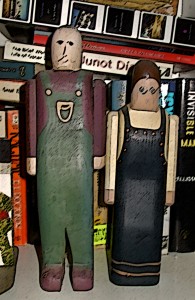 Greg breaking his right arm at work on Tuesday only meant she didn’t see it coming when his left hand smashed into her face on Tuesday night.
Greg breaking his right arm at work on Tuesday only meant she didn’t see it coming when his left hand smashed into her face on Tuesday night.
*
*
*
*
*
*
*
*****
#65 LIFE STARRING CRYSTAL JEAN
(what if life were like making movies)
Crystal Jean was going to be a star. Her mother said so. All she had to do was wait for opportunity and there she’d be, up on the big screen maybe, TV definitely. And she wouldn’t have to eat a slug. It would be a weekly drama and she would play the female lead. You know how it is; we’ve all felt this way.
One morning Crystal Jean awoke after a dream so strong that she looked sideways and wondered if Johnny Depp had gotten up and gone to take a shower. She rubbed an edge of the sheet over her teeth and fluffed up her hair. Her mother’s voice cut through the morning like a chainsaw and she sighed and got out of bed. She clomped down the stairs, glad that the house emptied out before she reached the kitchen. Crystal Jean was on summer vacation and hadn’t yet found a job.
She poured out a bowl of thirty-grain cereal and soy milk and flicked on the TV.
And there she was.
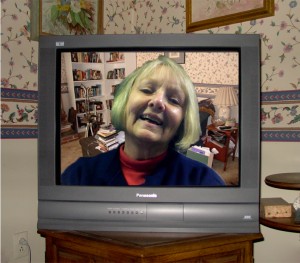 “So that’s where Johnny went,” she said. She watched them kiss again, he gave her that sly pirate smile, hopped in his Hummer and waved goodbye. She showered and dressed in her lawyer suit and took the Mercedes into the city. She dazzled in the courtroom. Only she or Perry Mason could get away with the last minute stunning revelation of the real murderer.
“So that’s where Johnny went,” she said. She watched them kiss again, he gave her that sly pirate smile, hopped in his Hummer and waved goodbye. She showered and dressed in her lawyer suit and took the Mercedes into the city. She dazzled in the courtroom. Only she or Perry Mason could get away with the last minute stunning revelation of the real murderer.
It turned out to be a daily show, and Crystal Jean had mixed feelings about that. She wondered what would happen when she left to go back to school but the producers told her they’d last through Christmas break on reruns. She agreed, since she’d be paid for those again.
“So what time is it on?” her girlfriend Tia asked, then said it was too bad it wasn’t prime time. Crystal Jean complained to the producers and some compromise was made and her show was moved to Friday nights at eight.
“That’s you! That’s my girl!” her father shouted. Crystal Jean was happy he and her mother were so pleased. “Can you get me a spot on the show?” he asked.
“But you’re a chicken plucker,” she said. “Hmmm, I suppose.” Then of course she had to get her mom a spot, and Tia too.
“Ah, you’ve saved our farm,” her father said.
“I do think that’s the fastest you’ve ever plucked, dear,” said her mother. “But Crystal, you were just fabulous!” She wiped away a tear of pride.
The show got fantastic ratings as it went on. People wanted the humanness of the chicken plucker and his wife. Crystal Jean and Johnny broke off their engagement and despite her protests, Johnny was killed off at the season end and Crystal lost her job as county prosecutor when she overlooked a piece of evidence and her client was sentenced to death in the electric chair but he escapes. In the last thirty seconds of the season finale, just as you see Johnny drive the Hummer away, just before it explodes, and Crystal Jean is standing in the doorway of her parents’ house crying, there is a movement in the azalea bushes and the scene fades to black.
After the last show was wrapped up, Crystal Jean started watching reruns. She started noticing things she hadn’t seen the first time around. Like her bedroom was her bedroom and she wore the same clothes that now hung inside her closet. Besides her parents and Tia, her neighbors, the McCurdys and the Adams were in the show (just walk-on parts) and even the mailman and the cat and dog were there.
“Yeah, that’s real dumb, lady,” she found herself saying to Crystal Jean as she was about to walk down into a darkened cellar. She slogged down the last sip of her Pepsi and as she headed to the refrigerator for another, didn’t notice the bad man in the azalea bushes watching through the kitchen window.
The next morning Crystal Jean woke up and through her sleepy eyes just caught the flash of Johnny’s ass as he was headed for the shower.
*****
#64 THE FORTUNETELLER
(dispel)
 It was so absurd. The gypsy so looked the part of your movie-influenced image. All colors of ruffles and folds and fringes. A bright floral scarf tied on her head like a pirate might wear, or a gypsy. Though she came with a carnival I figured she’d at least know a curse when she saw it and could help me. I’d given up on the concept of prayer and God.
It was so absurd. The gypsy so looked the part of your movie-influenced image. All colors of ruffles and folds and fringes. A bright floral scarf tied on her head like a pirate might wear, or a gypsy. Though she came with a carnival I figured she’d at least know a curse when she saw it and could help me. I’d given up on the concept of prayer and God.
The low tent flickered in candlelight. Now and then something would glint in the dark spaces then disappear. There was an overwhelming incense-y scent.
“I have this growth on my privates,” I told her. “Do you have to see it?” I asked.
“Good God, no!” she said. Her expression was as sour-faced as you would imagine she’d be after listening to human anguish from people who’d held her as their guide, their foreseer of truth. Their get-me-out-of this gal.
“Well believe me, I don’t know where I got it. I think it’s a tumor,” I said.
“What do you want from me?” She didn’t look pleasant at all.
“Am I going to die?”
“Of course. We all do,” she said. She turned and spat into the corner, wiped her mouth with her sleeve.
“I mean from the tumor–if that’s what it is.” I was beginning to doubt her abilities.
She took my hands in her own, flipped them over and back three times, and studied the webwork of veins on the top. I have very obvious veins.
“I thought you’d read the lines in my palm,” I said. She gave me a dirty look and flipped them over again.
“I see you laying flat, your legs spread, a bright light overhead. A man stands over you with a knife.”
“Is it an altar?” I asked. “Am I being sacrificed?”
“It’s a doctor’s office,” she said and turned and spat into the corner again. I heard the ping and knew that she’d nailed it this time. A spittoon, I imagined, made of brass.
“That’s right!” I exclaimed, my faith completely renewed. “I have an appointment tomorrow.”
“I see blood,” she said.
“Oh my God! Then…”
She cut me off. “You’ll be fine.”
“Thank you, thank you!” I cried. My fears allayed by my new oracle. “However can I thank you!”
“One hundred dollars,” she said.
*****
#63 TRAVELING MAN

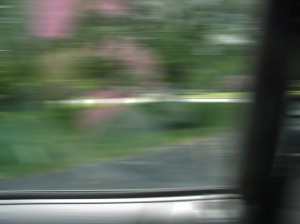 His timing was off and the train whistled by him nearly catching him by a sleeve. He wondered what that would have been like, to be dragged by the Number 17 all the way to maybe Topeka, or maybe to Spain.
His timing was off and the train whistled by him nearly catching him by a sleeve. He wondered what that would have been like, to be dragged by the Number 17 all the way to maybe Topeka, or maybe to Spain.
He knew he was old and tired. Too slow for his bones to leap quickly. Too old for the dreams anymore. Living free had the high price of dying alone somewhere. Much sooner than maybe he would have if he’d stayed in the country and married that honey-blonde girl. Or gotten a job here in the city at least. He was destined, he knew, to be found sprawled dead under the bridge by the river, or curled up in a grassy culvert by the side of the tracks. He wondered if it was really too late to change his ways, to change living. He let himself wonder because it was the last dream he knew he could have.
The next morning luck was on his side. He grabbed for the bar and swung up just as the train pulled away. He hung on as it gathered its power, then made his way up to the railing, steadied himself and opened the door.
No one looked up, no one noticed. He sat low in a back seat and weary, dozed in the rocking arms of the rhythm of tracks. The sun felt warm as a mother’s hand on his face.
The conductor nudged him awake. “Your stop, sir,” he said, and the man blinked his way to awareness. “Thank you kindly, Sam,” he said, grabbing his briefcase and smoothing his suit, sitting at the edge of the seat. He leaned forward, looking through the windows as a platform and people came into view. He searched the figures and faces for a wife and his children as the train slowed, slowed, and never quite stopped.
*****
#62 GRAVITY
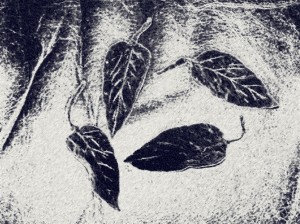 One year the leaves fell as heavy as apples. Several people were seriously hurt. John Gibbons said it was a good thing they’d nearly finished the tunnel and more people could move underground.
One year the leaves fell as heavy as apples. Several people were seriously hurt. John Gibbons said it was a good thing they’d nearly finished the tunnel and more people could move underground.
It had been hard to adjust. Dogs snickered as dogs sometimes do, watching people tethered with leashes to bars overhead maneuvering sidewalks. Handrails were added to all public toilets and people held on for dear life. But these were just temporary attempts and everyone knew something more serious would have to be done. It’s just that, like everything else, some people didn’t believe that gravity could strengthen its grip and nothing that anyone could say or prove with their research could sway them. Sink holes they countered as natural. Photos and measures of icebergs sinking into the sea were argued to merely be melting. Had the problem been acknowledged sooner, possibly more could have been done.
John Gibbons was a builder. A high priced New York City architect who’d built the sky-high thousand-floored housing coliseum when Central Park was sold. He was a pariah to the citizens, upset that the city was changing. It changed even more after that though they wouldn’t admit it until two full floors were sucked in. That took a few years but the structure collapsed in an instant when the forces were strained to their limits. Now Gibbons rebuilt the whole thing again underground. “Mathematically and based on the data,” he said, “the gravitational pull will be countered by the boiling core of magma making its way to the crust of the earth.”
It sounded good.
Time changes perspective and memory. Generations die as they should. Else sky couldn’t be explained away in a textbook. Ocean breeze and the salt smell of the sea would inspire melancholy instead of the disgust and fear as the words say. And leaves, well I guess they’d be green, turn colors and in autumn, fall off.
*****
#61 GHOSTS
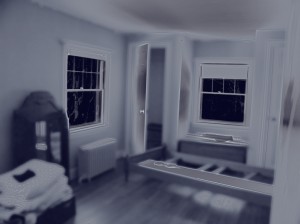 The old man had said he saw her still, out of the corner of his eye. But when he’d turn to look she wouldn’t be there. He had said she looked just like the last time he had seen her, healthy, alive.
The old man had said he saw her still, out of the corner of his eye. But when he’d turn to look she wouldn’t be there. He had said she looked just like the last time he had seen her, healthy, alive.
I worried as I put their things in boxes. I felt so alone and yet I didn’t feel I was as I cleaned out drawers and closets. Memories dragging along like a safety net to keep things in the box marked “Dad’s” instead of “Salvation Army.” Each rug held spots of time. This was where Jenny spilled her wine when she told us Andrew had proposed. Impressions in a rectangle would match the hospital bed. The puppy stains, the cat’s.
Oak floors that hadn’t seen the light for forty years gleam cold in dusk-light, protected by the wall-to-wall they hardly seem alive. But something is. The quiet is unnerving. I close the bathroom door though I’m the only daughter left here working. I look around before I leave, planning tomorrow’s little jobs. I haven’t called the realtor yet but that’s been on each day’s list. Tomorrow. Tomorrow I will if I can.
I leave different lights on than I’ve left last night. To fool the burglars? That’s what I tell myself; to make it look like someone’s home.
Just as I’m leaving something catches my eye. In the dark corner of the living room. I stare into it as deep and hopeful as I can.
*****

 The Lost Children: A Charity Anthology
The Lost Children: A Charity Anthology